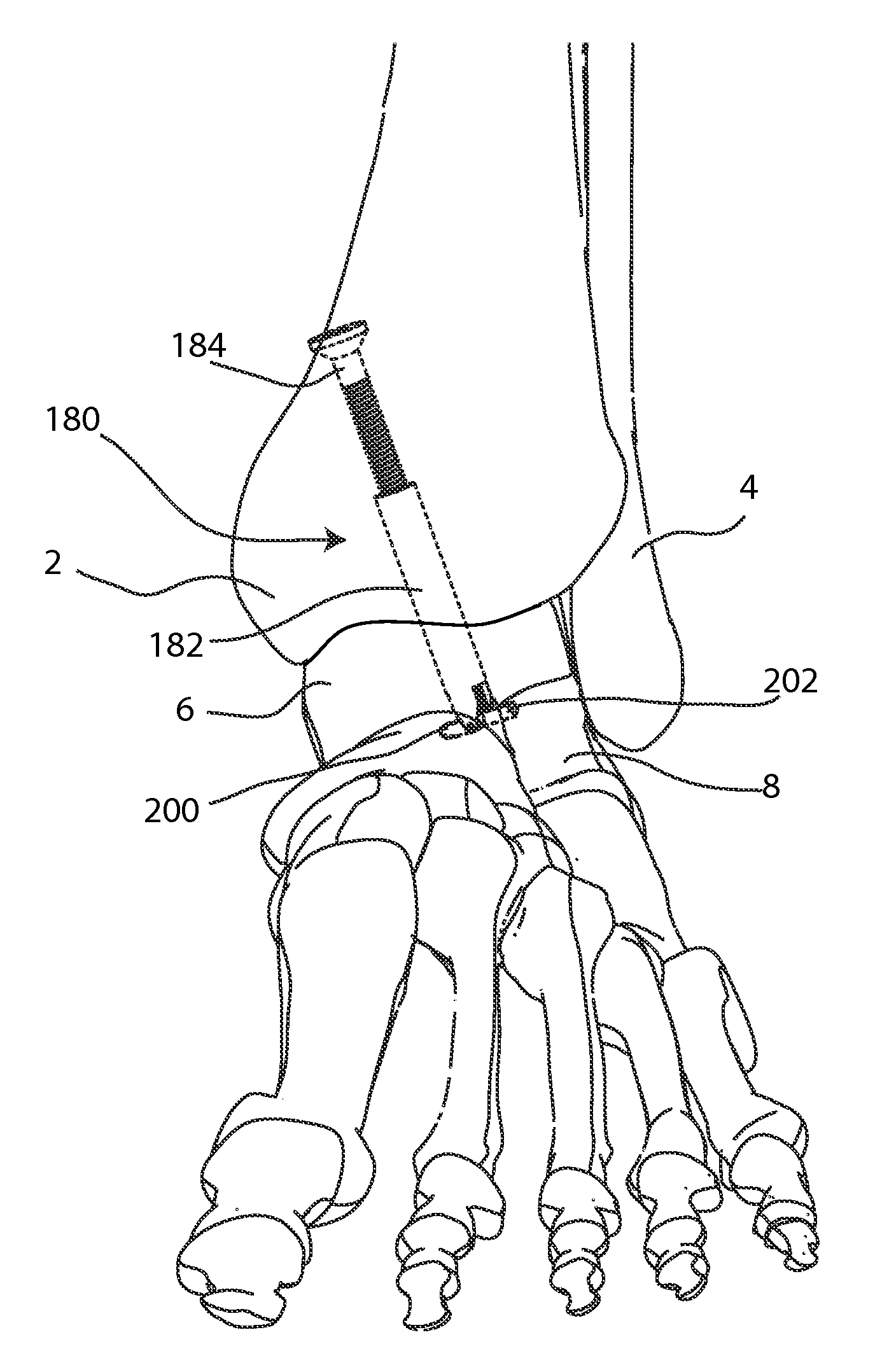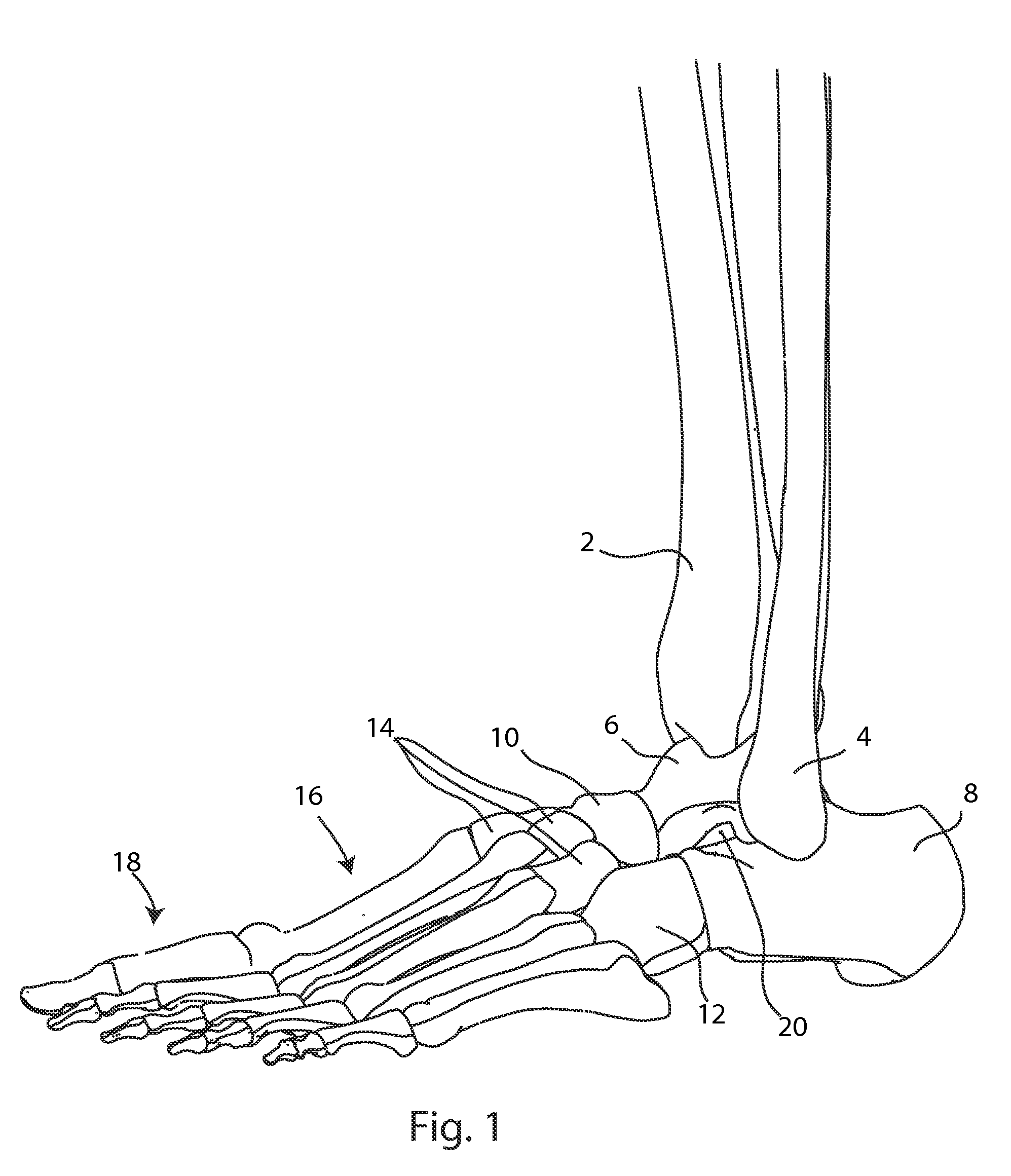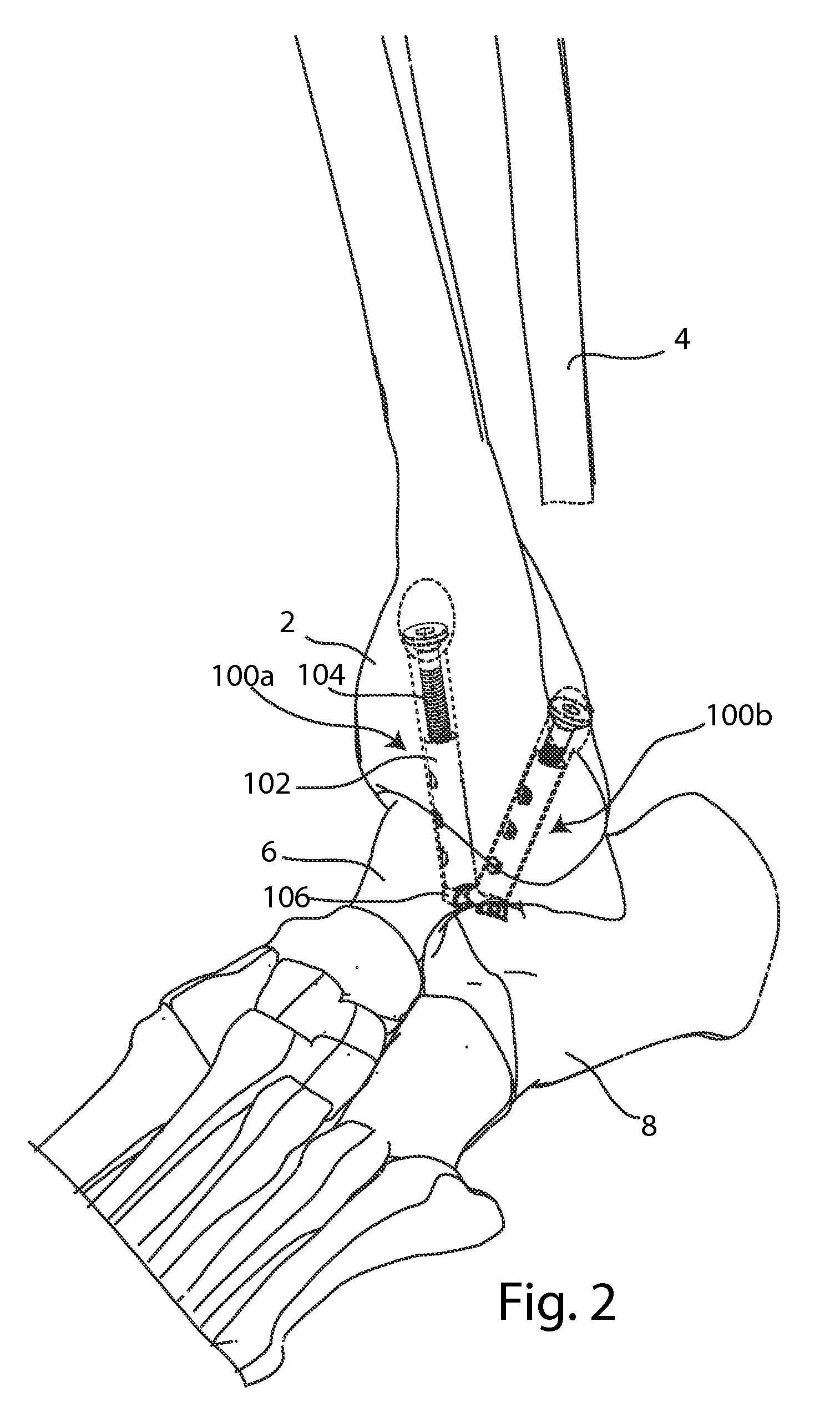Joint Arthrodesis and Arthroplasty
a joint arthrodesis and joint technology, applied in the field of surgical implants, can solve the problems of lack of adequate compression, complicated cannulated screws, and problems with the current system for ankle arthrodesis and arthroplasty
- Summary
- Abstract
- Description
- Claims
- Application Information
AI Technical Summary
Benefits of technology
Problems solved by technology
Method used
Image
Examples
Embodiment Construction
[0056]The present invention relates to implants for ankle arthrodesis and / or arthroplasty. Those of skill in the art will recognize that the following description is merely illustrative of the principles of the invention, which may be applied in various ways to provide many different alternative embodiments. This description is made for the purpose of illustrating the general principles of this invention and is not meant to limit the inventive concepts in the appended claims.
[0057]One embodiment of the invention may be an implantable bone fixation system for providing compression between a first exterior bone surface and a second exterior bone surface. The bone fixation system may include a first elongated structure, a second elongated structure, and an anchor. The first elongated structure may have a head and a shaft, the head shaped to bear against the first exterior bone surface. The second elongated structure may have a proximal end, a distal end, a longitudinal axis extending b...
PUM
 Login to View More
Login to View More Abstract
Description
Claims
Application Information
 Login to View More
Login to View More - R&D
- Intellectual Property
- Life Sciences
- Materials
- Tech Scout
- Unparalleled Data Quality
- Higher Quality Content
- 60% Fewer Hallucinations
Browse by: Latest US Patents, China's latest patents, Technical Efficacy Thesaurus, Application Domain, Technology Topic, Popular Technical Reports.
© 2025 PatSnap. All rights reserved.Legal|Privacy policy|Modern Slavery Act Transparency Statement|Sitemap|About US| Contact US: help@patsnap.com



